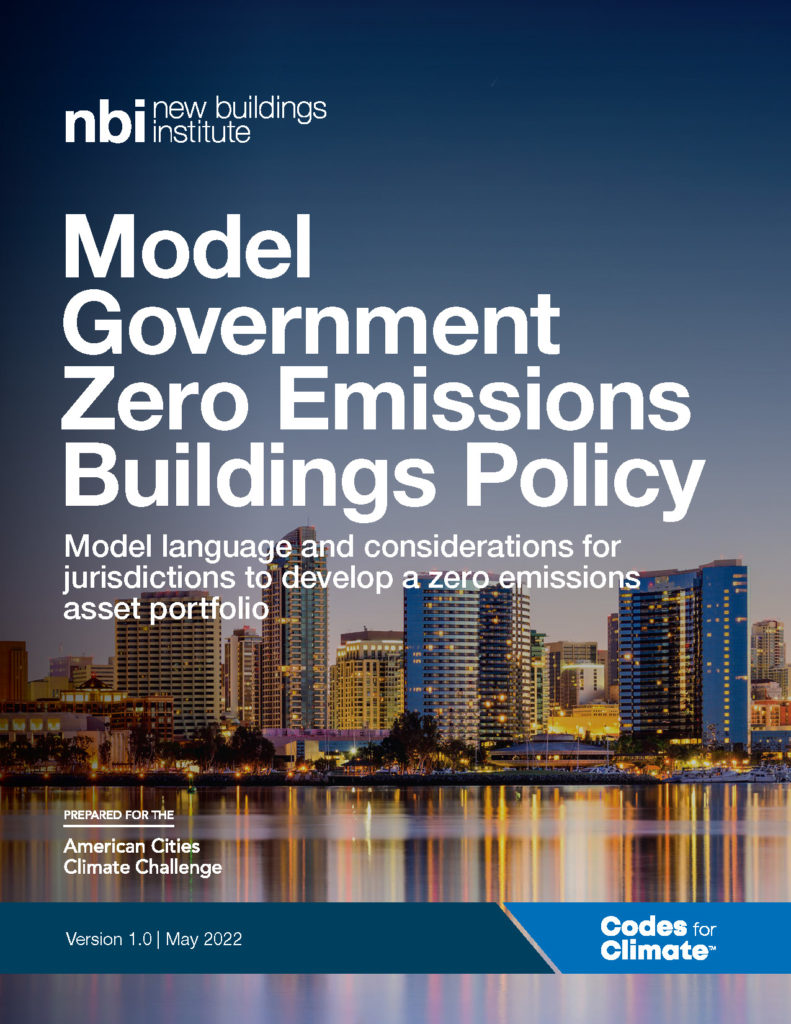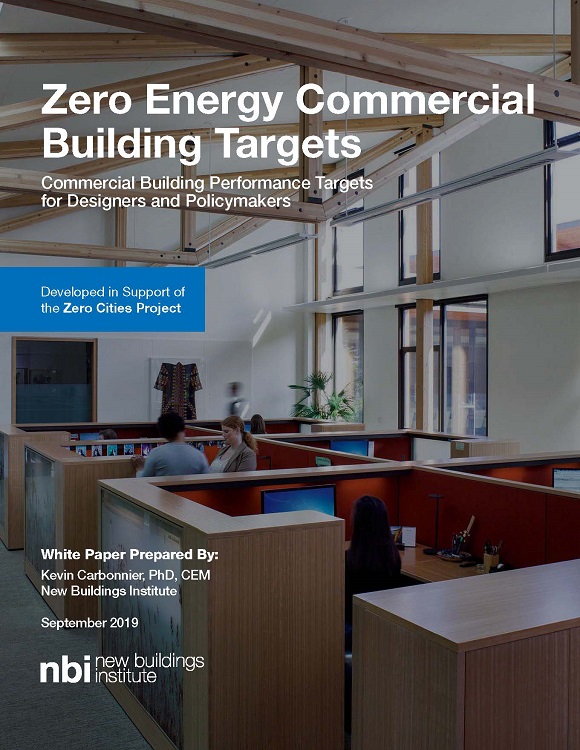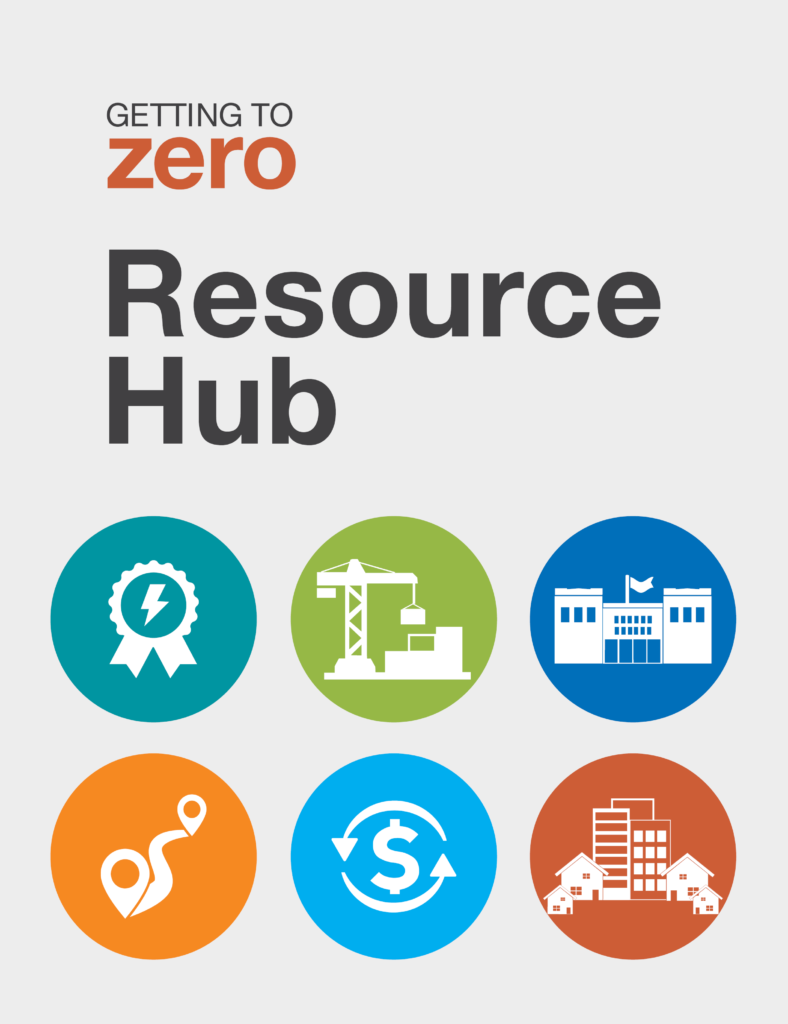Model Government Zero Emissions Building Policy
Guideline / May 18, 2022 / Codes And Policy

Released by New Buildings Institute, the Model Government Zero Emissions Buildings Policy provides plug-and-play policy language for jurisdictions considering taking a “lead by example” approach to building decarbonization. By using their own buildings to demonstrate how new technologies and operational procedures can both reduce energy and carbon emissions, governments can show the market what’s possible. They also demonstrate all the ways in which zero emissions buildings benefit owners, tenants and the general public—by lowering operating costs, reducing pollution and serving as comfortable, healthy places to work, live, learn and recreate.
Related Resources
Public Buildings Portfolio Management Implementation Guide
The Public Buildings Portfolio Management Implementation Guide outlines a process to help staff engage stakeholders, set tangible goals, target opportunities, and develop a plan to achieve deep and ongoing energy reductions in public building portfolios. This guide was produced with support from the U.S. Department of Energy and the Northwest Energy Efficiency Alliance. The guide was developed by a team including NBI, EcoEdge, Maalka, and NEEA.
 Zero Energy Commercial Building Targets
Zero Energy Commercial Building Targets
The critical first step in achieving a zero energy building is to set an energy use target. This Zero Energy Commercial Building Targets white paper helps define appropriate goals for these ultra-low energy buildings, which often surpass even the most stringent energy codes in place today. Designers, policymakers, and owners who are targeting zero energy buildings can look to this guidance to answer the crucial first question: “Where do I start?” Targets that address whole-building energy use are also effective tools to overcome barriers in the existing energy code framework to move the market toward zero.
 Getting to Zero Resource Hub – Local Governments Toolkit
Getting to Zero Resource Hub – Local Governments Toolkit
This toolkit is for states and local jurisdictions looking to reduce energy use and carbon emissions in both their own publicly owned commercial buildings and the general community building stock. Cities, counties, state agencies, school districts, and other governing bodies can use this toolkit to lead by example by getting on a path to zero energy and carbon in their own buildings as well as policies that impact other buildings.

